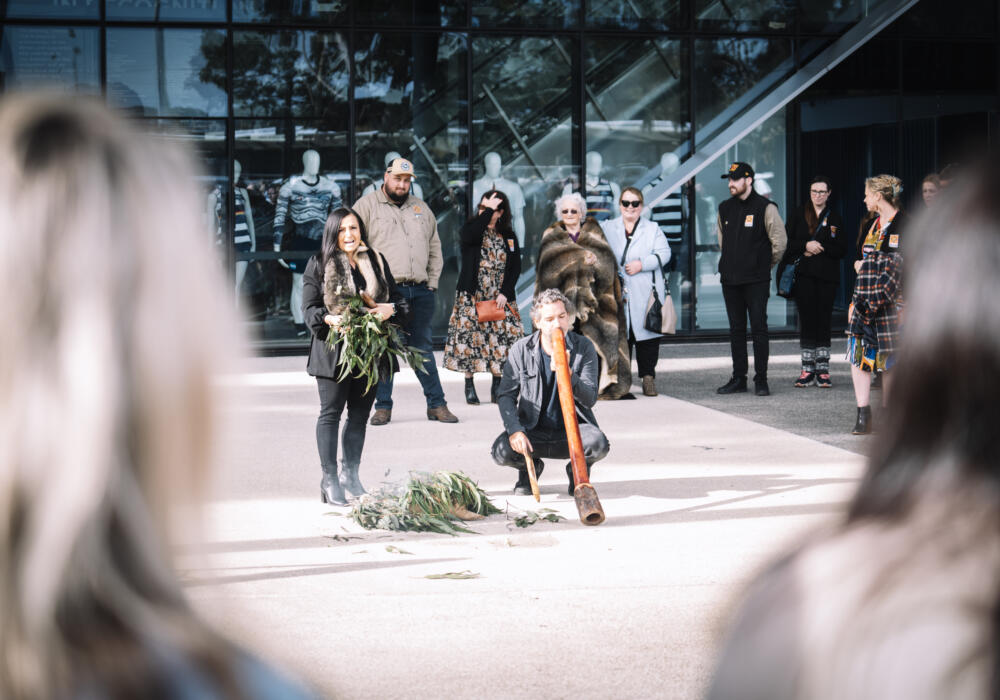The Uniting Power of Listening
I was incredibly lucky recently to find myself in an ancient old growth forest on Palawa Country, listening to a gentle, inspiring, and courageous Palawa man share his story.
A group of us stood as dusk and silence fell and the night turned crisp and cold, in a forest as old as time itself next to a burbling tea colored river and a crackling fire listening to one man’s very personal story.
We listened to the words.
Words that told us how he was brought up being taught at school that there were no Aborigines left in Tasmania, yet he knew a different story every time he looked in the mirror.
Words that told us how he left school effectively illiterate, became a young father, lived a turbulent life, but with a bit of support and encouragement and a lot of determination he taught himself to read, found employment and is now a valued team member of the university and writing his own book.
More importantly we listened to what was beneath the words.
The feelings of exclusion he felt us a young boy. The shame and embarrassment he felt as a young man. But now the richly deserved pride and strength he has in himself, his family and his culture.
It was simultaneously heartbreaking and inspiring.
It seems to me the referendum on October 14th to decide whether we should have an Aboriginal Voice to parliament is not really about voice it is all about listening.
If voted for, The Voice will enshrine something in the Australian Constitution, probably forever.
But it won’t enshrine executive power, it won’t enshrine decision making, it won’t enshrine an ability to make laws or create legislation. It won’t compel governments to act or compel them to change anything if they choose not to.
It will simply enshrine the most unifying and uniting act possible. It will enshrine, that as a nation, we will listen.
Both sides of the referendum debate continue to galvanise in their positions and throw insults at the other side. Those on the Yes side use the description racist pretty liberally while those on the No side accuse others of being ‘woke’ or of ‘virtue signaling’.
I wonder what would happen if we stopped that behavior and instead, truly and deeply listened?
What would it look like to heed the advice of First People’s to sit in the dirt, have a yarn and listen to each other? I wonder if we would reach a better agreement.
The exchange of ideas and debate is a key tenet of a pluralist free democracy. But all too often those exchanges focus on trying to convince and persuade rather than listening and showing real and deep curiosity and empathy.
I am proud to say the Give Where You Live Foundation is strongly and emphatically in support of the ‘Yes Campaign’. Not to ‘signal our virtue’ but because we have long held the view that people and communities should have voice and agency in improving and changing their trajectories.
That means listening, we need to listen.
The questions for our nation on October 14 are more than the one we will be asked on the referendum paper.
Beneath that referendum question we are being asked, will we listen to our First Peoples, who innately and unequivocally have a unique and incontrovertible place in our diverse and multicultural society?
Will we listen to the people who, of all the races and backgrounds that make up our community, have the worst social outcomes? Will we listen to their ideas of how we as a nation can help change their life trajectories?
Will we move from truth telling to truth listening?
Will we listen to the oldest living culture on Earth? A culture that, on 14 October, we have the great privilege of embracing.
I for one truly hope we will.
Bill Mithen
CEO
Give Where You Live Foundation

